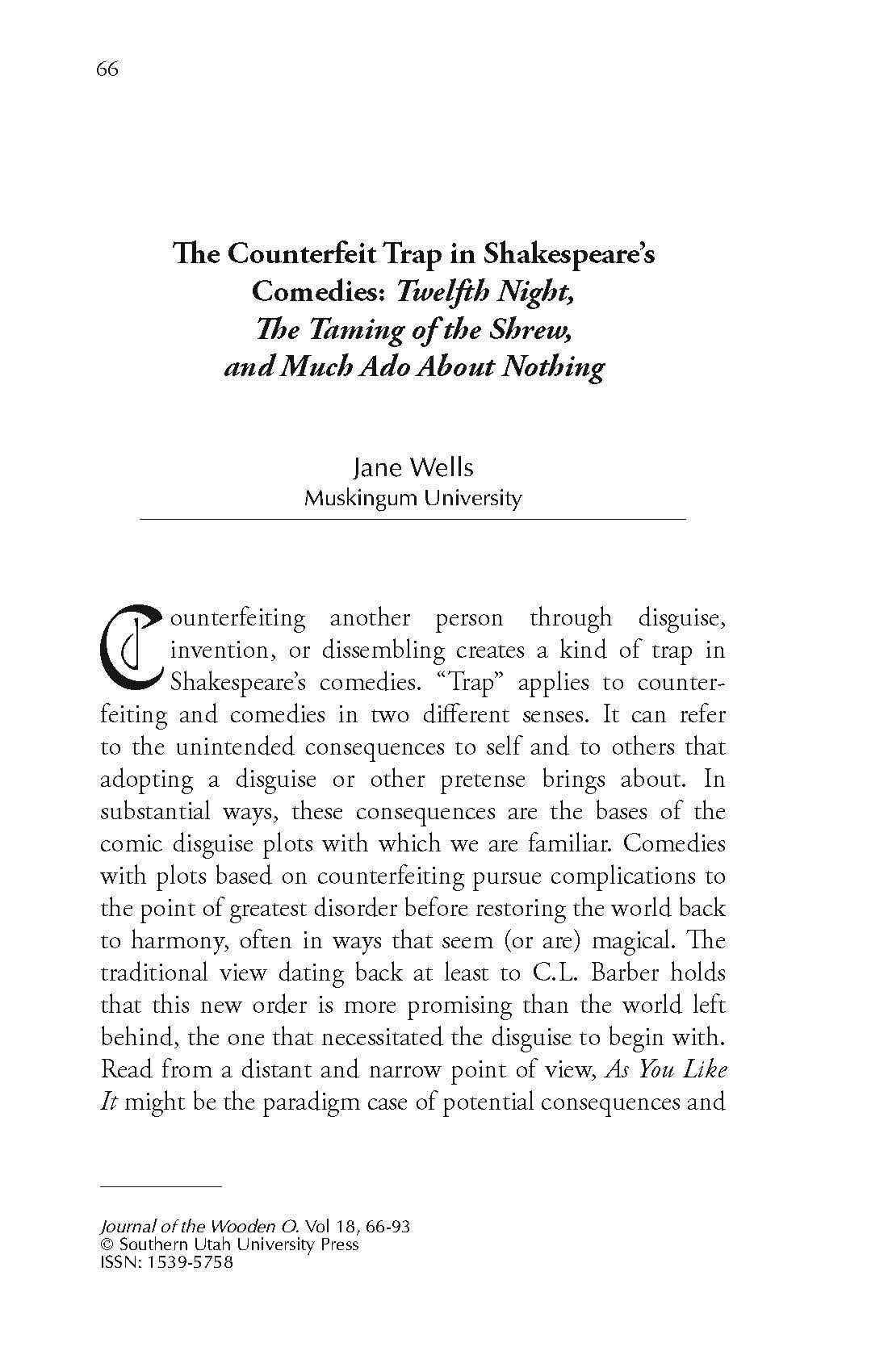The Counterfeit Trap in Shakespeare’s Comedies: Twelfth Night, The Taming of the Shrew, and Much Ado About Nothing
Main Article Content
Abstract
Counterfeiting another person through disguise, invention, or dissembling creates a kind of trap in Shakespeare’s comedies. “Trap” applies to counter-feiting and comedies in two different senses. It can refer to the unintended consequences to self and to others that adopting a disguise or other pretense brings about. In substantial ways, these consequences are the bases of the comic disguise plots with which we are familiar. Comedies with plots based on counterfeiting pursue complications to the point of greatest disorder before restoring the world back to harmony, often in ways that seem (or are) magical. The traditional view dating back at least to C.L. Barber holds that this new order is more promising than the world left behind, the one that necessitated the disguise to begin with. Read from a distant and narrow point of view, As You Like It might be the paradigm case of potential consequences and romantic transformations, ending as it does not only with Rosalind and the Duke’s restoration of their roles but also with Frederick and Oliver’s reformation of their souls.
